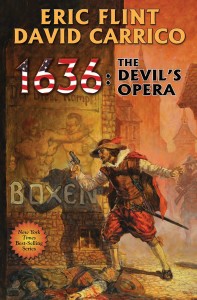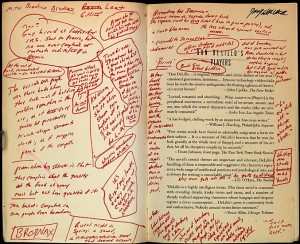 Most of us are not so egocentric that we write strictly for our own pleasure. We want our work to connect to readers. We want to know that we are touching someone; that our work creates a resonance in at least one reader who feels what we are trying to create in the stories that only we can tell because of who we are.
Most of us are not so egocentric that we write strictly for our own pleasure. We want our work to connect to readers. We want to know that we are touching someone; that our work creates a resonance in at least one reader who feels what we are trying to create in the stories that only we can tell because of who we are.
So first, writers write. That’s the core truth of our craft and art. All of the writing rules boil down to: tell a good story; finish what you start; and edit/revise/polish enough to make it right. If that doesn’t happen, nothing else matters.
Second, we have to connect with readers. You’ve been reading a number of articles this month on ways to accomplish that. I was asked to write about my own experience, because it’s a bit different.
I broke into publishing through Eric Flint’s unique alternate history shared writing universe that is based on his bestselling novel entitled 1632. (Details and background here.)
I believe this is the most successful shared universe ever. It’s approaching seven million words in print, with fifteen novels in print as of next month, eleven anthologies of shorter fiction, and approaching sixty issues of the Grantville Gazette e-magazine (called GG by the regulars). The novels and anthologies, both paper and e-book, are published by Baen Books; GG is published by Eric Flint, but is strongly associated with Baen Books. So this experience is, for all intents and purposes, one in the traditional publishing channels.
I wasn’t part of the core group of fans who started writing what amounted to fanfic and posting it to Baen’s website after 1632 was published. (See details and background link above.) I didn’t enter the picture until after the second issue of GG was published in 2003.
I’d been trying to write a novel for years; had absolutely no experience at short fiction. But I got hit with a story idea after reading the first two issues of GG. And the rest, as they say, is history.
It’s been eleven years since I submitted my first story. As of now, I’ve published close to 300,000 words of short fiction with GG, most of which have been included in subsequent anthologies or my e-book 1635: Music and Murder, published by Baen in 2013.
The thing is, in this venue, I have no control over production, scheduling, or marketing. That’s all in the hands of Baen Books personnel for the books or Eric Flint and the editor (Paula Goodlett) for GG. Nonetheless, I do contribute.
1632 is a group brand, and my contribution is to be professional in the ways I plug into the brand’s operations. First, part of the uniqueness of the GG submission process is that prospective stories are submitted to a forum on Baen’s Bar where they are peer-reviewed for mechanics and story universe continuity and quality of story. Even at this stage of my career I have to do this. Likewise, I am expected to participate in this exercise from the other side of the table; to read submissions and provide critiques. Both the submitting and the critiquing calls for utmost professionalism as I grow both as a writer and as a member of the community.
Second, when the editor(s) call for changes or modifications to the story, accommodate them without complaint or argument—within reason.
Third, contribute to the community:
One way is to share links and information about the 17th century with the rest of the 1632 community. You never can tell what will be helpful to another writer. I had a story jump-started by a list of lute-players at the court of Gustavus Adolphus that another writer had found and linked to the forum.
Another way: Eric schedules annual 1632 “mini-cons” partnered with other conventions around the country. They move around every year. This year’s mini-con will be held at LibertyCon in Chattanooga. Several of us make an effort to be there every year to support the group brand, to interact with fans, and to be a part of central planning and discussion with Eric about where the series is headed.
Yet another way is to attend other cons, spreading flyers, bookmarks, and other swag, and keeping the 1632 brand in view at other venues. (I have a 1632 Ring of Fire t-shirt I frequently wear.)
Most of the overt marketing is done by Baen Books or by Eric Flint. But I and the other GG authors contribute to supporting the group brand. And in so doing, I help to support my individual brand as well.
The GG enterprise has to date published over 130 authors, most of them first-timers. A significant number of those authors qualified for SFWA membership based on their GG resumes alone. Over the years, Eric has been watching the list of GG authors, and every once in a while he will reach out and tap someone and say “Let’s write something together.” I was the third one he tapped, and the result was my first published novel, 1636: The Devil’s Opera. I was the first GG author he tapped, though, to work on a project outside of 1632. The result was the third novel in his Jao Empire series, entitled The Span of Empire, tentatively slated to be published by Baen in September 2016.
Writing a good story, and being diligent and professional in everything else, those are the keys. Everything else is details.
Shameless plug: Grantville Gazette is always looking for new writers. If you think you might be interested in writing in one of the most interesting alternate history universes around, check out the links mentioned above. If you can tell good character based stories, give it a try. They pay professional rates; currently six cents a word, if I remember correctly.
 David Carrico Bio:
David Carrico Bio: David Carrico has been an avid science-fiction and fantasy reader since January 1963, when he encountered a copy of Andre Norton’s novel Catseye. He started writing (mumbledy) years ago, but has been selling professionally since 2004. Most of his work is alternate history. His first book, an e-book entitled 1635: Music and Murder, was published by Baen Books in September, 2013. It’s a collection of two different groups of stories which collectively provide the backstory for his second book, 1636: The Devil’s Opera, a novel published by Baen Books in October, 2013, in both paper and e-book formats. Both books are laid in Eric Flint’s Ring of Fire alternate history universe, and the novel was co-written with Eric.
David is married, has three kids, five grandkids, two great-grandkids, and usually has at least a couple of Basset hounds lazing around the house somewhere.



